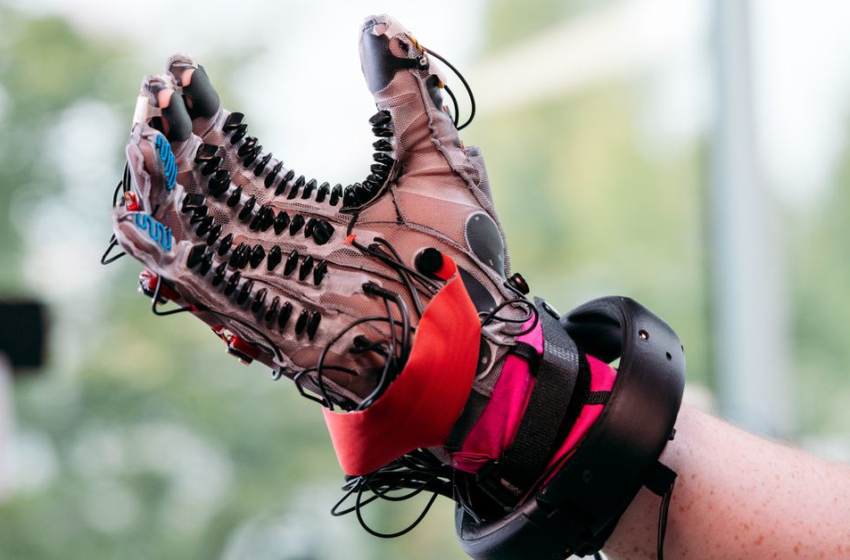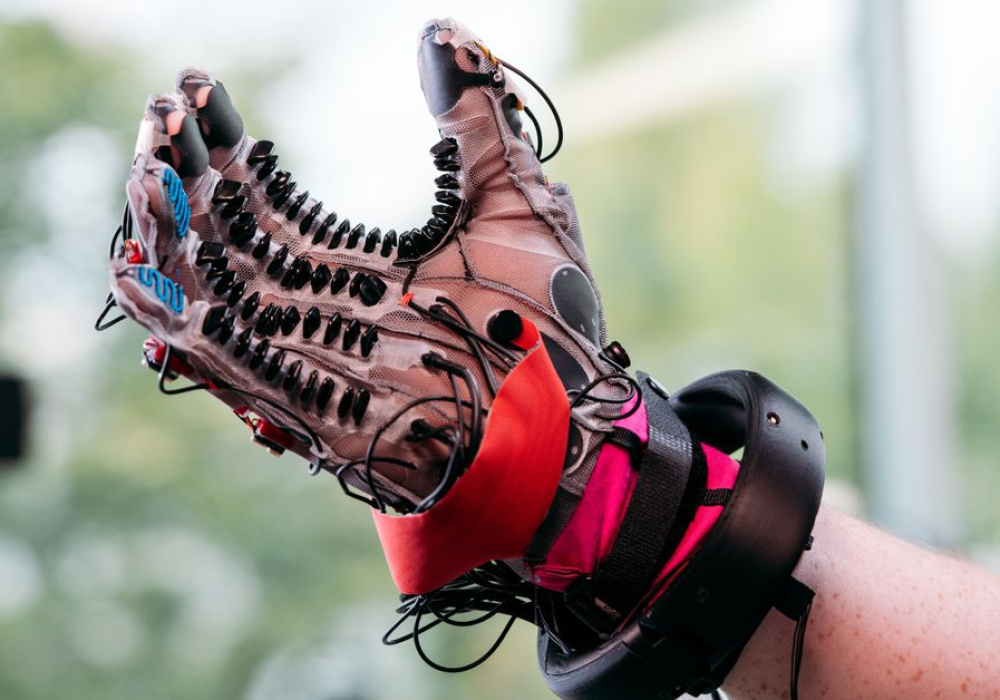Haptics company HaptX claims Meta (formerly Facebook) copied its patented designs in a glove that the tech giant revealed yesterday. HaptX — a longtime player in the virtual and augmented reality industry — says parts of the glove appear “substantively identical” to its own work using pneumatics to simulate physical touch.
“We welcome interest and competition in the field of microfluidic haptics; however, competition must be fair for the industry to thrive,” said HaptX founder and CEO Jake Rubin in a statement. “While we have not yet heard from Meta, we look forward to working with them to reach a fair and equitable arrangement that addresses our concerns and enables them to incorporate our innovative technology into their future consumer products.”
The Meta glove is an in-progress design that won’t be commercialized for years, if ever. However, Meta Reality Labs — a VR- and AR-focused research division — believes touch is a vital piece of future consumer-focused VR / AR systems. The glove uses inflatable rubber pads and a sophisticated control system to create a sensation of pressure or resistance when users touch virtual objects. HaptX developed a similar inflation-based system that it sells to professional clients rather than consumers.
HaptX, formerly known as AxonVR, debuted publicly in 2016 after four years in stealth mode. Meta researchers say they developed their first glove prototype in mid-2015, not long after the tech giant acquired VR startup Oculus. However, Meta has substantially expanded on its initial prototype, and HaptX claims the two companies have had extended interactions. “Over the years, we’ve hosted many engineers, researchers, and executives from Meta to demonstrate our groundbreaking haptic technology,” said Rubin.
Meta has been accused of unfairly competing against VR software developers by cloning their products while limiting access to the Quest platform. This situation is slightly different because HaptX is accusing Meta of direct patent infringement — something that could potentially lead to legal action. Reached for comment, HaptX declined to comment on what it would consider a fair agreement with Meta, as well as whether it might pursue a lawsuit if it fails to reach one.
A Meta spokesperson declined to comment on the allegations.










